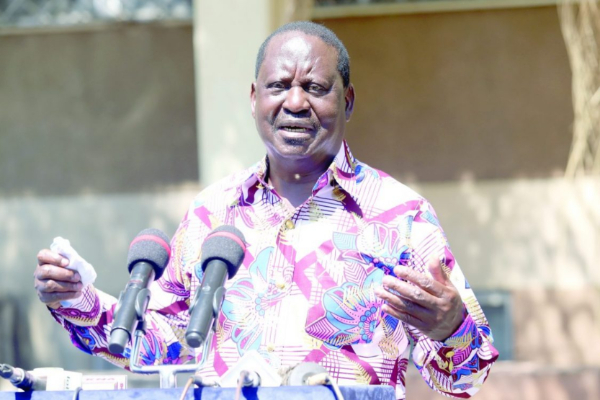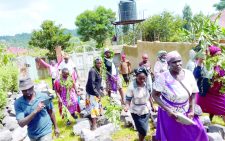Raila faults Kenya Kwanza approach to fight drought

Azimio-One Kenya leader Raila Odinga yesterday criticised the government’s approach to combating the drought currently ravaging the country, terming it lacklustre.
The opposition leader instead demanded an elaborate and long-term solutions to lift the country from cycles of drought and famine.
In a statement, Raila accused the government of adopting a lacklustre response to drought and famine at a time the country is experiencing one of the worst droughts in several decades.
He said the situation requires a massive response program to ensure rapid delivery of food, water and medicine to millions of people affected across the country. He accused the government of being consumed by politics of survival and elections of 2027 instead of giving the drought situation the required emergency response.
Severe beating
“The people with the power to do something for citizens and save our wildlife are instead blaming those out of government for not working with them. There is complete indifference to the suffering of the people and the severe beating the land is experiencing,” Raila, who is currently in India said in a statement.
“That seems to be what happens when a country finds itself in the hands of leaders who have no plans or mandate to govern. As if the indifference is not bad enough, top Government officials seem to be scheming to benefit personally from the drought,” he added.
The former Premier said that this is the logic behind the rush to allow Genetically Modified (GMO) foods in the country, adding that the drought and famine provides a chance to make a kill, pay back the foreign backers and align with those corporations for the future.
He said, “we remain opposed to GMOs. We do not see the GMOs as the answer to Kenyan’s recurrent food shortages.
Instead, we demand that President William Ruto’s administration explains to Kenyans the rationale behind the rush to reverse the 2012 directive that stopped importation and open cultivation of GMO due to concerns of the health risks and insufficient studies on their effects on small scale farmers and the local markets”.
Kenyan, he insisted, deserves a clear plan on increase in access to water to improve irrigation in the unpredictable climate, improve infrastructure to facilitate across markets and improve agriculture extension assistance programs.
This came as the national government said it is committed to feeding the population in the worst-hit areas by drought, following the flagging off of tens of trucks carrying relief assorted items to different destinations around the country in recent weeks.
State Department for Social Protection Principal Secretary (PS) Nelson Marwa assured Kenyans that everything possible will be done as the government tries to reach out to everyone adversely affected by the drought.
“I can assure you that the government is doing its best to reach the most affected households around the country,” said Marwa, who made the remarks at the national centre for controlling the distribution and logistics for the relief programme.
The PS said officials from his department and other stakeholders have been deployed to ensure the relief program is seamless, effective and impactful in the severely affected counties.
“As you can see, we have left offices to be at the forefront of ensuring the program goes on as planned and that those who are most affected get timely relief,” he said.
Marwa was in Mwatate, Taita Taveta county to flag off a relief food convoy to reach various parts that are hit by hunger and water scarcity.
National government
Mwatate’s Deputy County Commissioner (DCC), Margaret Mwaniki reiterated the commitment of the national government to feed those starving as it seeks a long-term solution to the food situation in the country.
She urged chiefs and local leaders to be vigilant in their areas of jurisdiction to ensure the relief food reaches the most vulnerable people. “Chiefs and local leaders must be vigilant in ensuring the distribution of the relief food reaches the most vulnerable targeted groups within the community,” she said.












